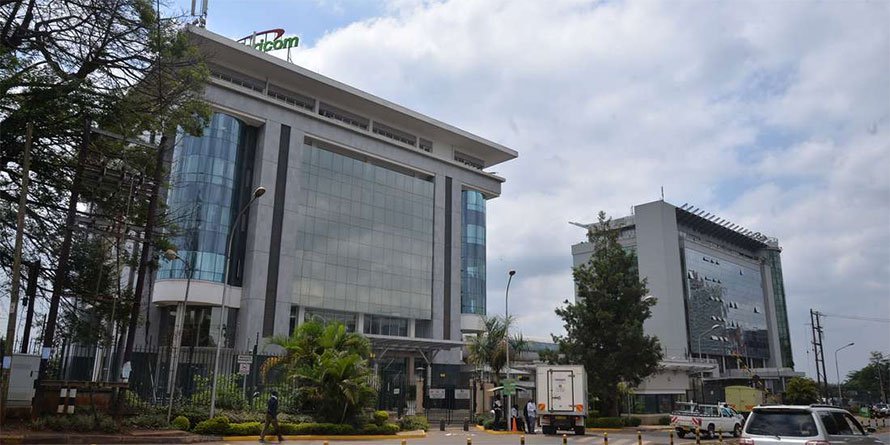Safaricom Headquarters along Waiyaki Way. FILE PHOTO | NMG Safaricom #ticker:SCOM and its partners have signed an agreement to borrow up to $500 million (Sh55.7 billion) from America’s sovereign wealth fund US International Development Finance Corporation to fund expansion into Ethiopia’s telecommunications market.
Safaricom and its parent companies Vodafone Group Plc and Vodacom Group Limited have formed a joint venture – Global Partnership for Ethiopia — through which they are bidding for one of two telecommunications licences being auctioned in that country.
The financial investment in Ethiopia is expected to top the $1 billion (Sh111 billion) mark, with the DFC loan deal seen as part of the project’s fundraising efforts.
“An up to $500 million (Sh55.7 billion) loan to the Vodafone-led Global Partnership for Ethiopia that will finance the design, development, and operation of a new private mobile network provider and the acquisition of a mobile network provider licence,” DFC said in a statement.
“The project is expected to have a highly developmental impact through the creation of a new private telecommunications network that will increase connectivity in Ethiopia while utilising trusted technology.”
Safaricom had earlier said it was ready to take more debt in its role as the majority shareholder of the consortium with a 51 percent stake.
Vodacom has a five percent interest in the joint venture, with the rest of the ownership spread among unnamed strategic financial investors.
The DFC loan offers the consortium long-term financing on relatively favourable terms.
The international financier says its loans typically mature between five and 25 years, with repayment schedules set on quarterly or semi-annual basis.
A grace period on principal repayment at the beginning of the loan term is also common. The interest rate is a “negotiated spread over the base-cost of funds.” Long-term US government bonds currently have interest rates of below two percent, setting a low base on which to price the DFC loan.
DFC, however, levies a series of special fees on its credit facilities, including upfront retainer (to cover due diligence), origination (payable once on first disbursement), commitment (an annual percentage on undisbursed amount) and maintenance (an annual charge to cover cost of monitoring the loan).The Safaricom consortium, if successful, will likely rely on funding from deep-pocketed foreign investors such as DFC given the size and international nature of the Ethiopia investment.The Nairobi Securities Exchange-listed firm’s borrowings have so far been limited to local banks from which it has mostly taken short-term debt denominated in […]
